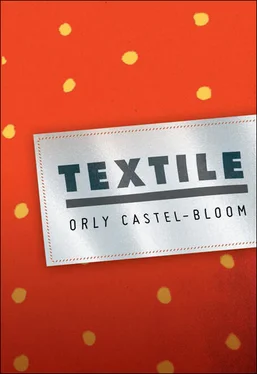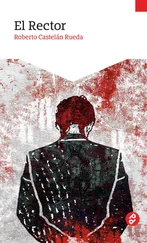“The president’s got a lot on his mind now and I respect him. He has the elections to worry about. Otherwise he would get to Cornell more often. He really likes visiting his friends. A great guy. He’ll win the elections.
“And now relax as if you’re in a crater on Venus,” he said slowly, in a low voice.
“What?”
“I took a little survey among my clients. What most relaxes them is a crater on Venus, or some other deserted planet, where the force of gravity is greater than on Earth. And to imagine that nobody can see them. In this way they’re forced to blot me out too, and causality, and judgmental attitudes, and I can tell you it relaxes most of them. Even though I’m married to a wonderful woman, before I go to sleep even I imagine that I’m alone on a deserted planet, and that I have no history. History is a load. A burden. Comparative literature is a burden too. A lot of things to remember. And so I decided to devote my life to my peace of mind.”
“Ah, ah,” Gruber groaned enjoyably as the latter smeared more oil on his back.
The masseur smiled to himself, sweating and satisfied, and said, “In half an hour tell me if you’re ready to sign the wall behind you, which you can’t see,” and he turned his head to indicate it. “A wall of important, satisfied clients. Abba Eban signed it too. I liked the late Abba Eban a lot.”
“If Abba Eban signed, I’ll sign too,” said Gruber without betraying his surprise. Even though he hadn’t yet decided who it would flatter more, him or the former foreign minister.
“The former president of France, Georges Pompidou, signed too. Remember him?”
“How old are you?” Gruber suddenly asked. He himself hardly remembered the late Pompidou, and when he tried to imagine his face he wasn’t sure that he wasn’t confusing him with some other European leader. An Englishman maybe, or the secretary general of the United Nations.
“Fifty-nine,” said the masseur.
“You should come and give massages in Israel,” said Gruber.
For ten seconds, the masseur dragged out his chuckle at Gruber’s joke — leave Ithaca to go and massage Israelis’ backs!
“That’s how it is with you people in the Middle East,” he spoke again, after an interval, while massaging Gruber’s scalp. “You kill them, they kill you. You have no choice, you have to kill one another,” and he permitted himself to press down lightly on a few meridians.
“That’s all,” he said in his gentle voice, and went to the end of the room to wash his hands in the sink. Gruber noticed that he exaggerated his ablutions. While soaping and scrubbing his arms up to the elbows, Hamlet called out to him, “Get up very slowly without straining your neck. You have a problem with the first vertebra, which holds up the head. When you get back home, go and have an x-ray. I didn’t work on it much, only around it, on the muscles.”
He dried his arms on a towel that matched the other colors in the room: pale peach and magnolia.
“Get dressed behind the screen, you’ll have time to think about signing the wall while you do it.”
Irad got up slowly. The pain in his back was gone.
From behind the screen he heard Hamlet say, “The effect of the massage lasts for a few hours. You may feel tired.”
“I’m tired anyway,” said Gruber.
When he looked at the signature wall, he saw that they were all in Latin letters, except for Abba Eban’s, who had signed in Hebrew. A. Eban . He signed in Hebrew next to him: I. Gruber .
IN THE BRIGHTLY LIT reception room, lacking any aroma of medicinal herbs, the Israeli scientist was about to pay for the enjoyable massage himself, but he was informed that Bahat had paid in advance.
Hamlet emerged from the treatment room with a pair of tongs holding a hot towel, which he wrapped round Gruber’s neck, and said, “Run to Mrs. McPhee’s car, the cold is bad for you. I’ve already called her.”
The woman who was going to get his TESU project off the ground, and bestow eternal significance on his signature emblazoned next to that of Abba Eban, stepped out of her warm car with the engine still running to meet him, and quickly opened the door of the passenger seat. She smiled at him. Her teeth were as white as a toothpaste commercial.
“Thank you very much,” he said.
“Don’t mention it,” she replied, and they drove off.
MANDY’S SHOULDER BLADE TRANSPLANTS, WHICH DIDN’T look bad at all, stuck out of the Medical Frontline blanket. It was clear that the operation had succeeded in principle, but she was in excruciating pain such as she had never felt in her life before. Not even after the liposuction from her stomach, which was considered complicated from the point of view of rehabilitation.
In the day that had passed since the surgery, Mandy had been blasted sky-high with pain and painkillers, from Voltaren to Percocet. She felt as if a world war was being fought within her.
She couldn’t believe that this was happening to her, and she longed for the presence of one of her children to hold her hand and feed her water with a teaspoon, since she was lying on her stomach and couldn’t drink anything without spilling it.
But one of them was in the army and the other was keeping an eye on the factory, and her husband was in America with some woman.
It was clear that something mythological was happening. Mandy Gruber, born in Rhodesia, resident of Telba-N., was not made for such levels of suffering. And not only the pain. The humiliation too.
“Nurse, nurse,” she moaned.
Nobody answered.
She wanted morphine!
“Nurse! Nurse!” she tried again, in vain.
With a supreme effort, Amanda succeeded in reaching her cell phone (just how isn’t clear, since she wasn’t supple, her strong suit was aerobics — she had a class twice a week at the St. Tropez Institute in the Mikado complex) and dailed 144 to ask for the Medical Frontline number, in order to reach the ward in which she herself was hospitalized.
Someone said, “Inquiries 144, Hello. Adina speaking. .”
Mandy was relieved not to have to remember the number they gave her but only to punch the star. She did punch the number of the extension for the recovery unit, heavily, and listened to seven long rings, which she heard, without synchronization, from the phone and also from behind the wall.
Usually Mandy had a very authoritative voice. She used it when she was giving motivational talks to the girls at the pajama factory. Once every few months Mandy asked Carmela to assemble them all in the neglected yard, and when they were standing in a semicircle, she herself stood on a step (you had to have a bit of hierarchy) and shot words at them.
During these talks Mandy felt at her best, and after them she was exhausted, sometimes she even went straight home.
“Come here at once!” she ordered the nurse who answered at last, but instead of the familiar authoritative tones she heard her voice petering out from one syllable to the next.
“Morphine,” Mandy greeted the nurse who arrived all nice and friendly.
“You need the doctor’s authorization,” said the nurse.
“So ask for it,” whispered Mandy.
“I’ll ask, but I can tell you right now he won’t agree to give you morphine on any account.”
“That’s. . all. . I. . need,” Mandy tried not to scream, but in the end she let out a loud scream, and even the nurse looked sorry for her.
“Okay, okay, I’ll talk to him,” she said.
Tears fell from Mandy’s eyes. She bit her lip and waited for salvation to arrive.
Ten minutes later the nurse returned with the doctor on duty, a young man who had recently completed his residency and had an earring in his ear and a tag on his lapel that read “Dr. Bialystotski.”
Читать дальше












